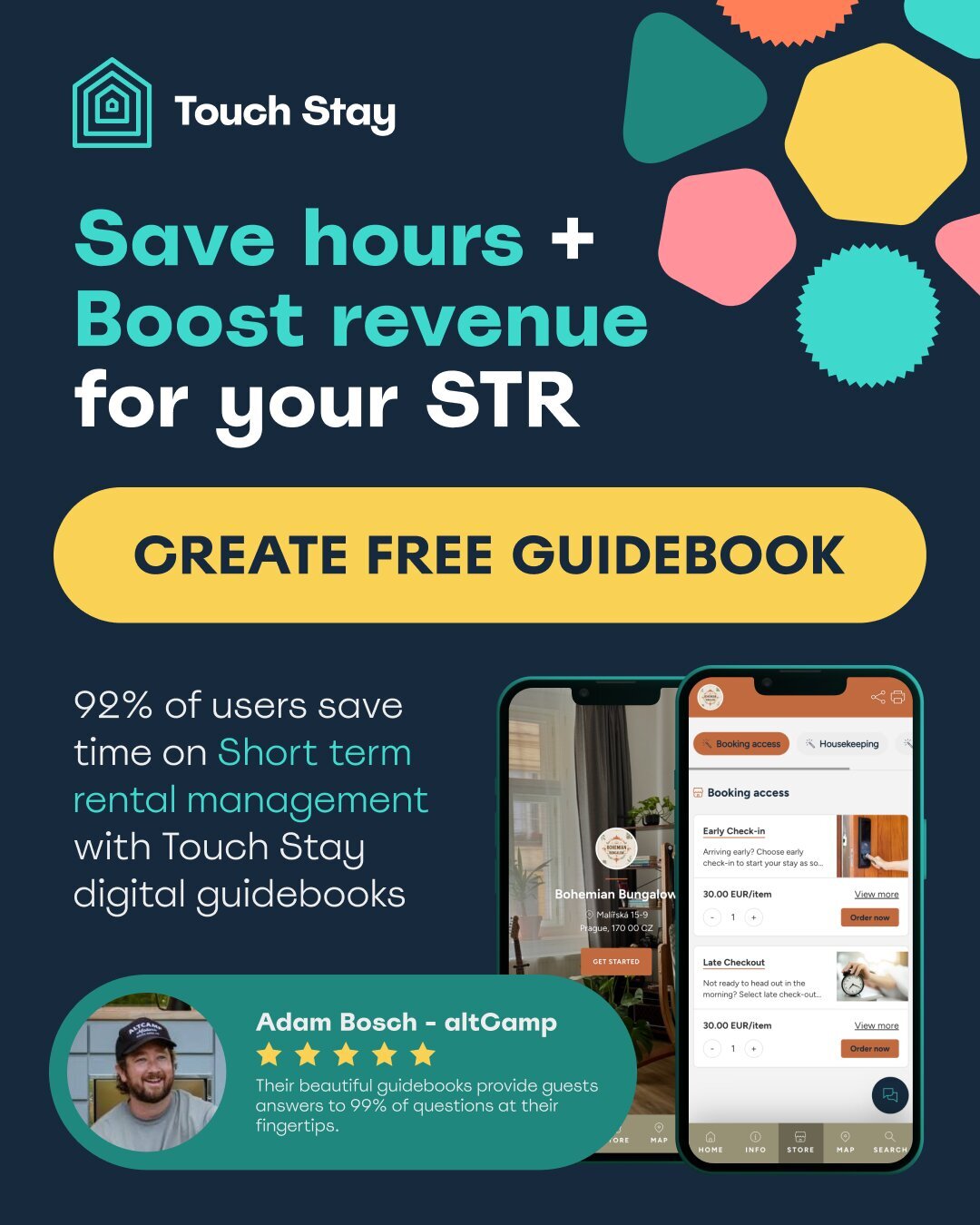Event management, regarded by 86% of marketers as crucial for achieving key business objectives, is inherently stressful due to its complexity and numerous details. Whether organizing a small gathering or a large-scale event, understanding the event planning process is essential. A comprehensive event planning checklist is invaluable in alleviating this pressure. Here, we'll guide you through the critical steps of event planning to ensure your event's success.
- 12 event planning steps for a successful event
- Key elements of event planning
- FREE event planning checklist
- Advanced event planning techniques
- Common mistakes in event planning
- Frequently asked questions
- Final thoughts
12 event planning steps for a successful event
The quality of your event planning will likely directly impact the success of your event. In this comprehensive guide, we’ll cover the 12 essential steps to plan a successful event in 2024. We’ll explore the key elements of event planning, including venue selection, budgeting, and team organisation, as well as advanced techniques and common pitfalls to avoid.
By the end of this event planning guide, you’ll have a thorough understanding of how to plan and execute an exceptional event that exceeds your guests’ expectations, no matter the industry or topic.
- Organise your objectives:
Clearly define the purpose of your event, whether it's to raise awareness, generate leads, or simply to provide an unforgettable experience for your guests. Establishing your objectives will help guide all your planning decisions.
2. Establish a budget:
Determine your available resources and create a detailed budget that accounts for all potential expenses, from venue rental to catering and entertainment. Use the Touch Stay event app to easily track and manage your budget.
3. Build an event team:
Assemble a skilled and dedicated team of professionals to assist with various aspects of the event planning process, such as marketing, logistics, and guest relations.
4. Select a venue and date:
Choose a venue that aligns with your event's theme and objectives, and ensure the date and time work for your target audience.
5. Develop a guest list and registration process:
Identify your target audience and create a guest list. Implement an efficient registration process, using online registration and ticketing features.
6. Establish vendors, sponsors, and partners:
Research and vet potential vendors, sponsors, and partners who can contribute to the success of your event. An event app can help you manage these relationships and streamline contract and payment processes.
7. Plan the program and entertainment:
Craft a detailed event agenda that balances informative content, engaging activities, and memorable entertainment.
8. Brand and market the event:
Develop a cohesive brand identity and promotional strategy to generate interest and drive attendance. Utilise Touch Stay’s customisable event app branding and marketing tools to elevate your event's visibility.
9. Determine an event day schedule:
Create a comprehensive timeline for the event day, outlining the flow of activities, staff responsibilities, and contingency plans.
10. Create success metrics:
Establish key performance indicators (KPIs) to measure the success of your event, such as attendance, guest satisfaction, and return on investment. Touch Stay’s Data Dashboard can provide valuable insights to help you evaluate your event's performance.
11. Prepare for guest arrivals:
Develop a detailed plan for guest registration, wayfinding, and on-site support to ensure a seamless and positive arrival experience. A Touch Stay event app's check-in and navigation features can streamline this process.
12. Post-event follow-up:
Gather feedback, analyse data, and follow up with attendees, sponsors, and partners to identify areas for improvement and capitalise on the momentum of a successful event.
Discover how to create an online event brochure.
How to plan events: key elements of event planning
Successful event planning requires careful consideration of key elements, including venue selection, budgeting, and team management.
Venue selection and management
The choice of venue and its subsequent management are essential elements in planning a successful event. The ideal venue should not only accommodate the event's size and needs but also provide a convenient location for attendees:
- Consider your event size and requirements: choose a venue that can accommodate your expected number of attendees and offers the necessary amenities, such as Wi-Fi, audiovisual equipment, and catering facilities.
- Location: consider the convenience of the venue for your guests, taking into account factors such as transportation options and accessibility.
- Venue management: work closely with the venue management team to ensure that all aspects of the event are coordinated and executed smoothly.
Learn how to create an event with pain-free event communications.
Budgeting for your event
Effective budgeting is essential for successful event planning. By creating a detailed financial plan and exploring cost-saving opportunities, you can ensure that your event stays within budget while meeting your goals:
- Create a detailed budget: break down your budget into categories such as venue rental, catering, entertainment, marketing, and staffing.
- Identify potential cost-saving measures: explore opportunities to reduce costs, such as negotiating with vendors or finding affordable alternatives for certain services.
- Monitor spending: track your expenses throughout the event planning process to ensure that you stay within your budget.
There are dozens of free event budgeting tools out there. 7 of the best can be found here.
Organising your event planning team
Assembling and organising a dedicated event planning team is crucial for a successful event. By assigning clear roles, using effective communication tools, and providing necessary training and support, you can ensure that your team works efficiently and effectively.
- Assign roles and responsibilities: clearly define the roles and responsibilities of each team member to ensure that tasks are delegated effectively.
- Use communication tools: use project management software or online communication platforms like Touch Stay’s Memo feature to keep your team organised and informed.
- Provide training and support: offer training and support to your team members to help them develop the necessary skills and knowledge.
Event planning checklist
Download your FREE event planning checklist to ensure nothing gets forgotten for your event!
Advanced event planning techniques
Using technology to enhance event planning
Technology plays a vital role in modern event planning. By utilising event management software, mobile apps, and exploring virtual and hybrid formats, you can enhance the efficiency, engagement, and reach of your event:
- Event management software: use software tools to streamline tasks such as registration, ticketing, and attendee management.
- Mobile event apps: create custom mobile apps to provide attendees with essential information, such as event schedules, maps, and networking opportunities.
- Virtual and hybrid events: explore the possibilities of hosting virtual or hybrid events to reach a wider audience and reduce costs.
- Touch Stay event app: leverage the Touch Stay event app to provide attendees with a personalised and engaging experience, including interactive maps, schedules, and messaging features.
Risk management in event planning
Effective risk management is essential for any successful event. By identifying potential risks and developing contingency plans, you can minimise disruptions and ensure a smooth event experience for all stakeholders:
- Identify potential risks: assess potential risks such as bad weather, speaker cancellations, or technical difficulties.
- Develop contingency plans: create backup plans for each potential risk to minimise disruptions and ensure that your event can continue smoothly.
- Communicate with stakeholders: keep your team and stakeholders informed of any potential risks and the measures being taken to mitigate them.
Check out this video from life coach and business mentor, Jamie White, on how to plan a successful event. It features a range of helpful tips to help nail your event:
Common mistakes in event planning
Avoiding common pitfalls in event planning is essential for a successful outcome. By accurately estimating the time and effort required, setting clear objectives, managing your budget effectively, maintaining open communication, and seeking feedback, you can minimise risks and ensure a positive event experience:
- Underestimating the time and effort required: planning an event can be time-consuming, so it's important to allocate sufficient time and resources.
- Failing to set clear objectives: without clear objectives, it can be difficult to measure the success of your event.
- Overspending: careful budgeting is essential to avoid financial setbacks.
- Poor communication: effective communication with your team, vendors, and stakeholders is crucial for a successful event.
- Ignoring feedback: gathering and analysing feedback from attendees can help you improve future events.
Learn how to create your own event app with our pain-free guide to event communications.
Frequently asked questions
The time required to plan an event can vary significantly depending on the scale and complexity of the event. As a general rule, experts recommend allowing at least 6 months to plan a mid-sized event and up to 12-18 months for a large-scale event. The Touch Stay event app can help streamline the event planning process and provide valuable guidance on realistic timelines.
The key costs associated with event planning typically include venue rental, catering, entertainment, marketing and advertising, staffing, and equipment/supplies. The Touch Stay event app’s budgeting features can help you accurately estimate and track these various expenses to ensure your event remains within budget.
Measuring the success of an event involves evaluating a range of factors, such as attendance, guest satisfaction, lead generation, revenue generated, and return on investment. Touch Stay’s Data Dashboard analytics tool can provide valuable data and insights to help you assess the overall effectiveness of your event and identify areas for improvement.
Final thoughts
Planning a successful event in 2024 requires a comprehensive and strategic approach. By following the 12 essential event planning steps outlined in this guide, leveraging key event planning elements, and using advanced techniques, you can ensure your event captivates your audience and exceeds your goals.
The Touch Stay event app is a powerful tool that can streamline the entire planning process, from budgeting and team management to guest registration and post-event analysis. By integrating the Touch Stay event app into your event planning workflow, you'll benefit from enhanced organisation, improved efficiency, and valuable data-driven insights to make informed decisions.
Remember, learning how to plan events is an iterative process. Continually seek feedback, analyse your event's performance, and apply lessons learned to your future planning efforts. With dedication, creativity, and the right tools and strategies, you can create unforgettable events that leave a lasting impression on your guests.
So, what are you waiting for? Create your Touch Stay event app and start planning your next successful event today!

Ned
Ned has clocked up over 11 years in digital marketing and comms, with a strong focus on creating engaging content for a range of brands and agencies. When he’s not writing, he can be found digging for records, peering through his telescope at the night sky, or onboard his local lifeboat where he volunteers as a crewmember.
Be the first to know!
Join our newsletter for early access to:
- ✅ Free guides
- ✅ Pro tips & tricks
- ✅ Time saving tutorials
- ✅ Latest blog posts
- ✅ Checklists & templates









-1.png?width=50)












.png?width=50)